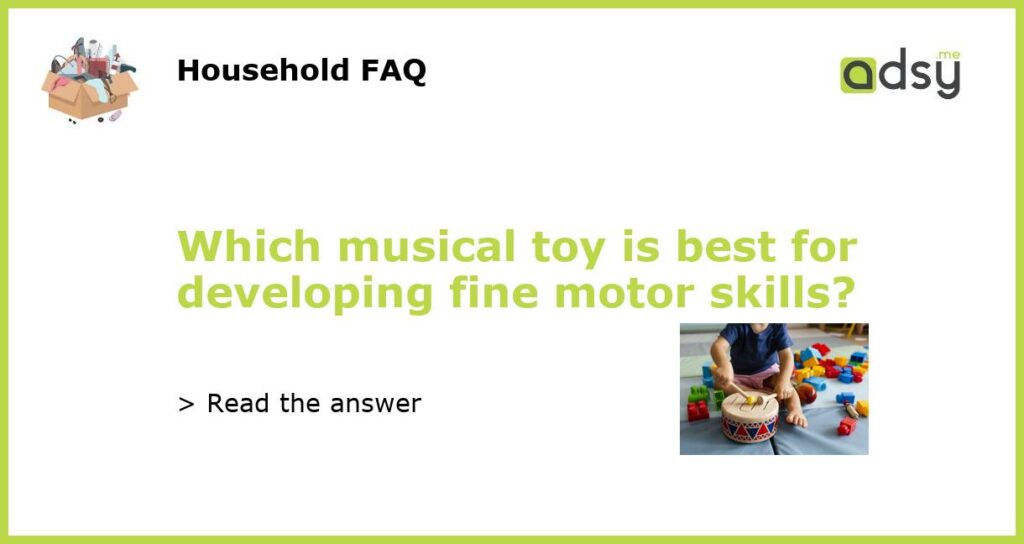The importance of developing fine motor skills
Fine motor skills are essential for daily activities such as writing, typing, using utensils, and dressing. They also play a crucial role in cognitive and social development. As a result, parents often seek out toys that can aid in the development of these skills. One popular category of toys is musical instruments. But which musical toy is the best for developing fine motor skills? Let’s explore the options.
Percussion instruments
Percussion instruments such as drums, xylophones, and maracas require the use of hands and fingers to produce sound. They offer opportunities for children to learn and practice gripping, using different finger movements, and coordinating their hand movements. These activities can enhance children’s fine motor skills and hand-eye coordination. However, it’s important to note that some percussion instruments can be loud and overwhelming, which may cause sensory overload in some children.
String instruments
String instruments such as guitars, ukuleles, and violins also require the use of hands and fingers to produce sound. They offer similar advantages to percussion instruments in promoting fine motor skills and hand-eye coordination. However, string instruments may be more challenging for young children due to the need for proper hand positioning and finger placement. They may also require more supervision and guidance from adults.
Wind instruments
Wind instruments such as recorders, harmonicas, and flutes require the use of fingers and mouth to produce sound. They offer unique challenges and benefits in developing fine motor skills. For example, playing a recorder requires players to use their fingers to cover and uncover the holes, while also learning to control their breath. These activities can improve finger dexterity and breath control. However, wind instruments may not be suitable for children with breathing difficulties or respiratory issues.
Piano or keyboard
The piano or keyboard offers a versatile option for developing fine motor skills. They require the use of both hands and fingers to produce melodies, chords, and rhythms. Piano or keyboard lessons can teach children proper hand posture, finger placement and movement, and hand-eye coordination. They can also offer a fun and creative outlet for musical expression. However, piano or keyboard lessons can be costly, and not all families may have access to a piano or keyboard.
In conclusion, musical toys can be helpful in developing fine motor skills in children. Percussion instruments, string instruments, wind instruments, and piano or keyboards each offer unique benefits and challenges. When choosing a musical toy, it’s important to consider the child’s age, abilities, interests, and any physical or sensory needs. Ultimately, the best musical toy for developing fine motor skills is one that can engage a child’s curiosity and creativity, while also providing opportunities for growth and development.






